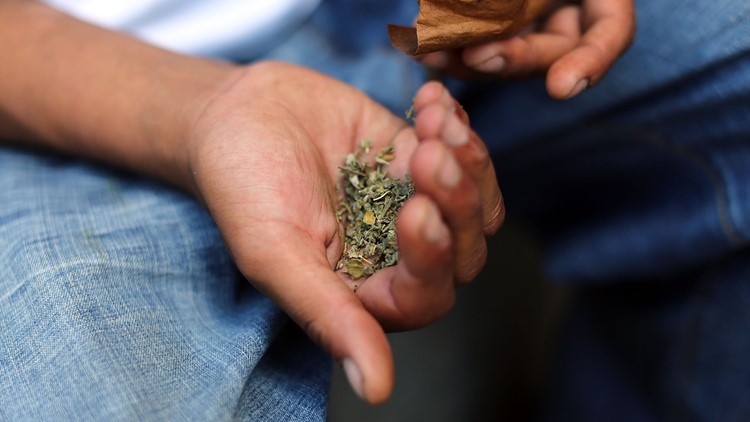SPRINGFIELD (Illinois News Network) — Governor-elect J.B. Pritzker said he wants to legalize marijuana for recreational use soon after taking office, but even advocates say won’t fix the state’s budget problems.
Michigan voters approved a referendum Tuesday to legalize it recreational marijuana use. State Rep. Kelly Cassidy, D-Chicago, who has held hearings and crafted legislation in Illinois to regulate and tax cannabis for adult consumption, said the race is on.
“I don’t like getting beaten, so I’m feeling salty about Michigan beating us,” Cassidy said.
She said one of the obstacles for Illinois to get it done has been Gov. Bruce Rauner, who opposed the move. Rauner lost to Pritzker, who supports recreational use. Pritzker said the revenue could help with the state’s finances.
Just how much money it could bring in remains to be seen. Estimates have ranged from $350 million to $700 million a year. By comparison, the state’s backlog of unpaid bill stands at $7.5 billion, and it has at least $130 billion unfunded pension liabilities.
Chris Lindsay with the Marijuana Policy Project said legalization isn’t a silver bullet for the state’s finances.
“Will it pay for everything? No,” Lindsay said. “But will it pay for some important programs that would otherwise go completely unfunded? Yeah.”
Cassidy said she pushes the idea mainly for criminal justice issues and also that the revenue will help, but not to solve the state’s fiscal mess. But Cassidy said she knows where some of the revenue from legal cannabis should go.
In hearings, Cassidy said other states with recreational pot urged policymakers to ensure the regulatory structure is funded. She said Illinois does have an advantage with an already regulated medical cannabis marketplace.
“[Recreational marijuana] will be a much larger marketplace than what we are living with right now,” Cassidy said. “We have to make sure that we do make that investment that the first place the funds go to is building that model out properly.”
Opponents of legalizing cannabis for recreational use, like the Illinois Family Institute, say such a policy will lead to increased exposure to children and will increase impaired driving accidents and fatalities.
Lindsay said there’s already a recreational pot marketplace in Illinois, it’s just unaccounted for, untaxed and unregulated.
“Revenue right now that’s going to underground criminal organizations, probably we can find better things to do with it in the general fund,” Lindsay said.
Cassidy said there are going to be other issues lawmakers will grapple with as they put the policies together, including making sure medical cannabis patients have priority in any possible product shortage, as has happened in other states that have rolled out taxed and regulated pot for adult consumption. She also said it’s important to ensure there’s equal and increased access to the marijuana industry for people of color and women, how to restore records of prior cannabis convictions, and how communities impacted by the war on drugs can benefit from the industry.
“Those are the questions that I wrestle with at night and make sure that we’re answering those well and that we become the model of the country and that our bill and ultimately our law becomes the model that other states look to,” Cassidy said.
The next step she said is for Illinoisans to give the incoming class of state lawmakers feedback on the idea. She couldn’t say how soon after the new year the issue would be taken up.



